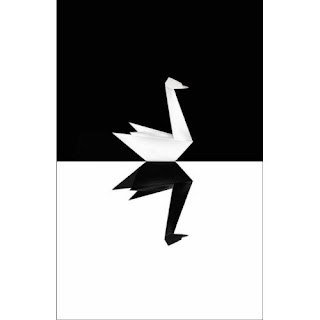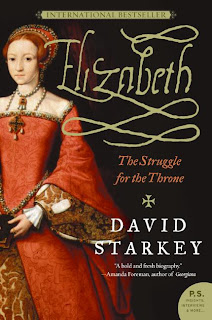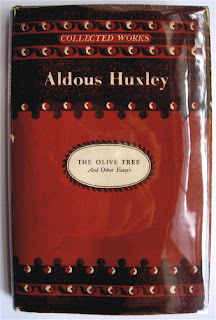Non-fiction. History books. Science for amateur readers. Politics. Social sciences. Essay collections. War reporting. Travel writing. All of them and more reviewed by the Bookworm. Pulp fiction not allowed.
Monday, 19 March 2012
Nassim Nicholas Taleb, The Black Swan
I usually choose library books at random, picking whatever takes my fancy, but this time was different. I came across the term 'black swan event' when reading about solar storms and was instantly captivated. I checked for the origins of the term, found Taleb's book and - oh lucky me! - they had it in my library's catalogue!
To put it short and sweet, a black swan event is something unpredictable that has a high impact on the world and is explainable only in retrospective. Think - a war, disaster or market crash. The book does not really focus only on those dramas, it has more to do with mathematical probability and philosophy of randomness (which makes it slightly tiring in the long run, unless you happen to be technically minded).
I believe the only real contribution it makes is linguistic - I have a funny feeling that 'a black swan event' is here to stay - but I liked the book nevertheless. I don't particularly need a 300-pages long essay to tell me that the world is chaotic and can kick you in the teeth anytime, but I enjoyed the book for two other reasons:
- subtle, often autoironic sense of humour - I'd even call it Pratchettesque, and if you know anything about me at all you'll know it is a highest possible praise I can bestow on a human being :)
- political incorrectness - not that Taleb touches on any sensitive issues, but I loved how he's being openly venomous about people he doesn't like. The usual decorum forces authors to pretend they like their opponents and any suggestions they may have are purely non-personal. Not in this instance - Taleb attacks and attacks furiously. While it may not add to his authority, it surely is refreshing.
I frankly admit I don't really get all the implications of the black swan theory. Maybe I'm not intelligent enough, maybe his theories are just a string of blah blahs, maybe to really grasp The Black Swan you need to be interested in stock markets or trained in statistics, I don't know. I do know that the book is worth reading even for pure entertainment. And if you can take some good advice out of it - all the better.
Sunday, 18 March 2012
David Starkey, Elizabeth: Apprenticeship
Elizabeth I is one of the most colourful characters of British (or indeed, world) history. She's had her share of publicity - just think of all the movies - so she's extremely recognizable even to people who have nothing to do with history. Even if you frown on Hollywood-born fame, you simply have to admit that Her Majesty had her finger in many pies - just try to research history of theatre, or history of piracy (as I did - you can have a look at the results here if you wish). Whichever faintly historical topic you pick, she'll pop up again and again.
No wonder then that many books have been written with Elizabeth I as the sole focus. Surprise, surprise, Elizabeth: Apprenticeship is one of them.
I have a feeling that the author aimed at something that reads rather like a novel, a thriller perhaps. On the other hand - you can't go on writing thrillers and keep calling yourself a historian. The book ended somewhere in between - too serious to be a gripping novel, too dramatized to be proper scholarship.
Ok, I have to say it sooner or later - I didn't like it one bit, for one particular reason that overshadows all other qualities that the book might have. It's the approach "all other historians are wrong, and I am right, because in fact Elizabeth thought this and meant that". And how the hell do you know??? Just as I can't digest literary critics who claim to know exactly what a poet wanted to say in his extremely vague verses, I can't tolerate historians who pretend to know the minds of their subjects as if they had been psychoanalyzing them personally for at least twenty years. I, quite simply, don't trust such authors. Out of pure contrariness, I start searching for any shortfalls and possible mistakes (which is rather funny, because I'm not a historian, and no matter how much I don't like Starkey's book, he's sure to know his subject far, far better than I). Quite simply, I can't enjoy reading a book if I'm angry with its author - and it makes reviewing the book so much harder, too!
I self-consciously admit that it might be my own personal obsession screwing my judgement, but on my personal scale the book gets 3 out of 10. It isn't really THAT bad... But I expected more.
You have been warned :).
Thursday, 15 March 2012
Aldous Huxley, The Olive Tree and Other Essays
Another essay collection ticked off my list. And because it was written by Huxley, I almost salivated at the very sight.
I am terribly impressed by Huxley's writing. Of all the prophetic visions that passed through my reading list, his Brave New World is definitely the most accurate one. I hoped his essays will prove just as stunning and to begin with my expectations were adequately met. At first, I kept on exclaiming 'Brilliant!' and 'The man was a genius!' - ask my partner if you don't believe ;) - but whoever put The Olive Tree essays in the order they are presented, he or she certainly didn't save the best for later.
I loved the first and the third piece in the collection - they are full of oh-so-Huxley-ish comments on contemporary reality (and if his words were true in the early XX century, now they ring only truer). He explores the power of words and the ways the words can be manipulated, he analyses the idea of power itself and its consequences, all done in elegant style and with impressive clarity. I adore the way he sees through mechanisms of advertising and all sorts of propaganda. Oh yes, Huxley on society is powerful, even breathtaking.
But... Huxley on literature? Huxley and biography or even *gasp* travel writing? Nah. Not for me. I'm not saying the rest of his essays is bad, just... uninspiring. And from this particular author - I expected more. Much more. Because I know that he can deliver.
Feel free to disagree :)
Tuesday, 13 March 2012
Neil MacGregor, A History of the World in 100 Objects
One word - brilliant.
Ok, ok, just kidding, I will tell you something more. Even though 'brilliant' would really be quite sufficient.
I definitely didn't expect it when I picked the book from library shelf. It's a thick, brick-like volume and the images are not too striking at first sight. I liked the concept, so I decided to give it a go, but to be quite frank - I didn't except much. I thought it will be a series of boring lectures on items no one has ever heard about, something that only an art history freak would enjoy.
Oh my, how wrong I was.
A History of the World in 100 Objects originated as radio broadcasts for BBC and you made have heard (of) it before, especially if you happen to live in the UK. I haven't, but if I ever have a chance, I will definitely listen to the spoken version. In fact, I'm seriously considering getting a list of BBC book publications and reading it A to Z - all the BBC books I've read so far were far above average. And no, BBC does not pay me a penny for this glorification (although, if it wished... haha). They are just damn good, ok?
Back to the book. The title is self-explanatory. What it does not suggest is the extreme vividness of the book's language, MacGregor's extraordinary talent to actually bring you back to a particular time and place without using too many words or overwhelming the reader with dry facts. I also enjoyed his elegant treatment of 'touchy' issues - whether political or ideological. For example, the 100 objects are all housed in the British Museum (MacGregor is its director), but come from all over the world and some - yes, me too - could ask if they should be there at all. The author negotiates this murky terrain with skill and diplomacy, not ignoring the debate, but not becoming overtly militant either.
Read the book and decide for yourself what it is. I can only tell you what it certainly ISN'T - it is not a dry treatise for professionals or maniacs only. Oh, and do not fear its encyclopedia-like appearance. Half of it is pictures anyway :)
Saturday, 10 March 2012
Simon Goldhill, Love, Sex and Tragedy
I wonder how many accidental visits will I get because of this title - it's quite catchy as far as titles go. But neither love, nor sex, not even tragedy have prompted me to pick this particular book. It was the subtitle: How the Ancient World Shapes Our Lives.
Let me tell you a little secret: I have a university degree in classical philology. It's been years since I had anything serious to do with the classics, yet I still have a soft spot for all things BC. I often complain that classic education is not valued in today's world and... so does Professor Goldhill. He makes a tasty promise in the introduction to his book:
"He [Cicero] is asserting that history makes such a difference that, if you do not work to understand it, you cannot lead a full life, an adult life, in society. History changes who you are, makes you who you are. If you do not know that history, then you cannot really be self-aware. That is a bold claim; and this book aims to show that it is true".
The book surely is interesting. It takes on various aspects of culture and society - politics, sexuality, entertainment - describes their classical origins and compares them to our modern reality. Stories are well told, supported by scientific data and digestable even for a laymen - and I believe this is the main benefit of the book, this makes it worth reading.
As to the self-declared aim of the author... I do wish he convinced me. I wish he could make it clear to everyone that classics is important and should be given more priority in our education systems or life in general (if only because it would make me slightly more employable). Unfortunately he didn't achieve his goal, not in my opinion. I agree that past events shape our present: all past events, all cultures, histories and societies leave some traces which we can find in ourselves if we try hard enough. Why should we prefere Greek or Roman culture above any other? It is our culture, Goldhill says. But it is ours precisely because we made it ours, by classical learning and yearning, by endless referencing to the past. I don't mind, I just wish to note that this study of the ancient world to which we are encouraged in the book is exactly the reason why it is still so visible in our society. The more effort we invest classics, the larger our classic heritage will be. Yet are we really such helpless children without understanding or valuing this heritage?
I don't think so.
Although the fact that I have been trained in just such understanding might make my judgement slightly flawed.
Saturday, 3 March 2012
Herman Melville, Moby Dick
A touch of classics, anyone?
It's been a while since my last posting, but that's only because of the very first thing you need to know about Moby Dick - it draaaaaaaaags.
But you cannot be nearing thirty without having read Moby Dick, am I right? I'd hazard saying that it's one of the most often referred to books in literature. Hell, even while I was reading it, I chanced to watch a Star Trek movie (First Contact I think it was) where captain Jean-Luc Picard was compared to captain Ahab in a heated argument with one of his ship's passengers. Yes, Melville's classic had been on my reading list for a long time and finally I got it.
It was totally unlike I imagined it. I pictured maddened chases after the noble (and rather cheesy - do excuse my imagination) white creature, with the captain being a cruel tormentor of his slaving crew. I imagined a dynamic adventure novel, something like Robinson Cruzoe, only happening on a ship rather than on a deserted island. I imagined... well, I imagined a lot of things but very few proved to have any coverage in reality.
If you ask me, the book is not about Moby Dick at all, and not even about chasing after this particular animal. It is a book about whales and whaling, with the famous hunt only thrown in as a background, as a skeleton on which all the rest is spun. Pages and pages of Moby Dick describe whaling boats, whaling equipment, processing of whale carcasses, whale's anatomy, whale's behaviour, whale's history, literary references to whales, pretty much anything whale-related you can think of is included. Even worries about whale's extinction as a species. That in the end they do battle the white giant - well, I guess it was inevitable, after all it's a novel, not a scientific treaty (although it reads like one).
I'm seriously wondering whether all this whale knowledge should be treated as sound and true. Probably not - even school children know that a whale is a mammal, not a fish, and if Melville got this very basic piece of information wrong, how can a reader trust the rest? But it reads well and sure as hell it sparks curiosity.
I mentioned earlier that Moby Dick drags - yes, you have to survive over a hundred pages before the Pequod ship even leaves her harbour. I actually started enjoying it after 300 pages or so... Might be just me, might be the book, consider yourself warned.
In the introduction to my copy, Patrick McGrath wrote that Moby Dick 'is now considered by many to be the best novel ever written in the English language'. Luckily, it isn't so. English literature would indeed look rather grim if Moby Dick was her ultimate achievement: the language is pretty nightmarish and structurally, I've read many a better novel, but even so - it is decent. Fairly decent, that's all.
I'm off to learn something more about whales.
Saturday, 11 February 2012
Eduardo Galeano, Mirrors
Two words - mixed feelings. Let's start with the good news, shall we?
My copy of Mirrors was fabulous, and I mean it. Not that it was new (although it was), but it was printed on beautiful paper, in an eye friendly font, decorated by stylish graphics. It would be a pleasure to read even if it consisted solely of blah blah blah. Well, ok, I might be exaggerating here, but only slightly.
As to the actual writing - yummy. Kind of poetic, kind of metaphorical, yet in most cases with delicious bottom line. Galeano has a knack for telling a moralising story without actual moralising, no sermons, but stories, pictures with a message that brings a reader to his or her knees. Stories on mistreatment of women over the ages. Stories of racism, of poverty, of power abuse, of cruelty and other ugly aspects of humanity. I would be totally in love with Mirrors if not for one tiny detail...
Short and sweet - I don't trust Mr Galeano. I don't have enough knowledge to speak with any authority about most of his stories, but there are some topics on which I am an expert and well... Let's just say I can't accuse the author of scientific accuracy, or even journalistic objectivity. The way I see it, he takes a story, an event, a myth and tells it in the way that will show his message in the best light, without bothering too much about facts. His message is praiseworthy, sure, but even the noblest of messages suffers when dressed in propaganda. Moreover, Galeano rumbles against using propaganda in politics - and proceeds to use distortions of the truth for his own means. Ouch.
As long as Mirrors is treated as creative writing, as an individual's view on the world's past and present, it is delicious.
Just double check the facts before you let it change your world.
Subscribe to:
Posts (Atom)







